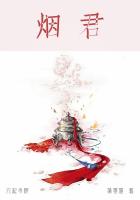I have tried in vain to find the causes of these peculiar changes of feeling. The ostensible reasons, as given in the newspaper, are so trivial as to be hardly worthy of belief. For example, here is the kind of news that comes out from the City. "The news that a modus vivendi has been signed between the Sultan of Kowfat and the Shriek-ul-Islam has caused a sudden buoyancy in the City. Steel rails which had been depressed all morning reacted immediately while American mules rose up sharply to par." . . . "Monsieur Poincar, speaking at Bordeaux, said that henceforth France must seek to retain by all possible means the ping-pong championship of the world: values in the City collapsed at once." . . . "Despatches from Bombay say that the Shah of Persia yesterday handed a golden slipper to the Grand Vizier Feebli Pasha as a sign that he might go and chase himself: the news was at once followed by a drop in oil, and a rapid attempt to liquidate everything that is fluid . . ."
But these mysteries of the City I do not pretend to explain. I have passed through the place dozens of times and never noticed anything particular in the way of depression or buoyancy, or falling oil, or rising rails. But no doubt it is there.
A little beyond the city and further down the river the visitor finds this district of London terminating in the gloomy and forbidding Tower, the principal penitentiary of the city. Here Queen Victoria was imprisoned for many years.
Excellent gasoline can be had at the American Garage immediately north of the Tower, where motor repairs of all kinds are also carried on.
These, however, are but the superficial pictures of London, gathered by the eye of the tourist. A far deeper meaning is found in the examination of the great historic monuments of the city. The principal ones of these are the Tower of London (just mentioned), the British Museum and Westminster Abbey. No visitor to London should fail to see these. Indeed he ought to feel that his visit to England is wasted unless he has seen them. I speak strongly on the point because I feel strongly on it. To my mind there is something about the grim fascination of the historic Tower, the cloistered quiet of the Museum and the majesty of the ancient Abbey, which will make it the regret of my life that I didn't see any one of the three. I fully meant to: but I failed: and I can only hope that the circumstances of my failure may be helpful to other visitors.
The Tower of London I most certainly intended to inspect. Each day, after the fashion of every tourist, I wrote for myself a little list of things to do and I always put the Tower of London on it.
No doubt the reader knows the kind of little list that I mean. It runs:
1. Go to bank.
2. Buy a shirt.
3. National Picture Gallery.
4. Razor blades.
5. Tower of London.
6. Soap.
This itinerary, I regret to say, was never carried out in full. I was able at times both to go to the bank and buy a shirt in a single morning: at other times I was able to buy razor blades and almost to find the National Picture Gallery. Meantime I was urged on all sides by my London acquaintances not to fail to see the Tower. "There's a grim fascination about the place," they said; "you mustn't miss it."
I am quite certain that in due course of time I should have made my way to the Tower but for the fact that I made a fatal discovery. I
found out that the London people who urged me to go and see the Tower had never seen it themselves. It appears they never go near it. One night at a dinner a man next to me said, "Have you seen the Tower?
You really ought to. There's a grim fascination about it." I looked him in the face. "Have you seen it yourself?" I asked. "Oh, yes," he answered. "I've seen it." "When?" I asked. The man hesitated. "When I
was just a boy," he said, "my father took me there." "How long ago is that?" I enquired. "About forty years ago," he answered;
"I always mean to go again but I don't somehow seem to get the time."
After this I got to understand that when a Londoner says, "Have you seen the Tower of London?" the answer is, "No, and neither have you."
Take the parallel case of the British Museum. Here is a place that is a veritable treasure house. A repository of some of the most priceless historical relics to be found upon the earth. It contains, for instance, the famous Papyrus Manuscript of Thotmes II of the first Egyptian dynasty--a thing known to scholars all over the world as the oldest extant specimen of what can be called writing; indeed one can here see the actual evolution (I am quoting from a work of reference, or at least from my recollection of it) from the ideographic cuneiform to the phonetic syllabic script. Every time I
have read about that manuscript and have happened to be in Orillia (Ontario) or Schenectady (N.Y.) or any such place, I have felt that I
would be willing to take a whole trip to England to have five minutes at the British Museum, just five, to look at that papyrus. Yet as soon as I got to London this changed. The railway stations of London have been so arranged that to get to any train for the north or west, the traveller must pass the British Museum. The first time I went by it in a taxi, I felt quite a thrill. "Inside those walls," I thought to myself, "is the manuscript of Thotmes II." The next time I
actually stopped the taxi. "Is that the British Museum?" I asked the driver, "I think it is something of the sort, sir," he said. I
hesitated. "Drive me," I said, "to where I can buy safety razor blades."
After that I was able to drive past the Museum with the quiet assurance of a Londoner, and to take part in dinner table discussions as to whether the British Museum or the Louvre contains the greater treasures. It is quite easy any way. All you have to do is to remember that The Winged Victory of Samothrace is in the Louvre and the papyrus of Thotmes II (or some such document) is in the Museum.















